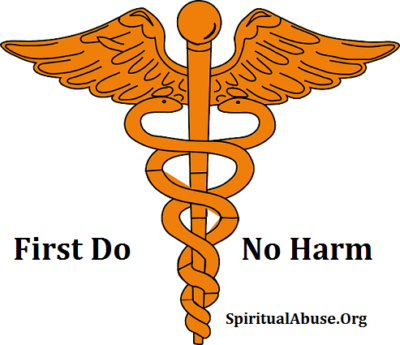Down from the house lies the vast open plains, tall grass decorated by dandelions and wild flowers, shadowed only slightly by the soft, fluffy clouds passing overhead. Just off to the side, the ground opens into row upon row of luscious grapes, delicately planted and cared for, stakes gently guiding the vines upwards to be kissed by the morning sun. The harvest will be plenteous this year. But what about the vineyard on the right? The enormous fence is broken down and giant weeds overtake the vines, suffocating them without water or adequate rays of light. Stones scatter themselves amongst the grapes, preventing seeds from crawling up through the dirt and bearing fruit. Where is the husbandman who should be caring for this vineyard? Does he not realize that a vineyard requires daily care, protecting it from thieves who desire to break through and steal? Does he not realize the stones need to be removed and the vines pruned often for the grapes to flourish, a crop to be proud of and to honor the Lord?“They made me the keeper of the vineyards; but my own vineyard have I not kept” (KJV Song of Sol. 1:6).
What better way to appeal to a husband’s pride than to announce him the keeper, protector, and nourisher of the vineyard? What better way to convince a woman to allow her husband to rule in every facet than to compare her to a luscious vine that needs the encouragement, protection, and pruning of the husbandman? Leave it to Independent Fundamental Baptist (IFB) churches to change an analogy meant to represent God and the children of Israel to characterize God’s calling on the home, thus ruling and dictating every component of the woman’s life.
Responsibilities of the Husbandman
“Now will I sing to my well-beloved a song of my beloved touching his vineyard. My well-beloved hath a vineyard in a very fruitful hill:
And he fenced it, and gathered out the stones thereof, and planted it with the choicest vine, and built a tower in the midst of it, and also made a winepress therein: and he looked that it should bring forth grapes, and it brought forth wild grapes.
And now, O inhabitants of Jerusalem, and men of Judah, judge, I pray, betwixt me and my vineyard.
What could have been done more to my vineyard, that I have not done in it? Wherefore, when I looked that it should bring forth grapes, brought it forth wild grapes?
And now go to; I will tell you what I will do to my vineyard: I will take away the hedge thereof, and it shall be eaten up; and break down the wall thereof, and it shall be trodden down:
And I will lay it waste: it shall not be pruned, nor digged; but there shall come up briers and thorns: I will also command the clouds that they rain no rain upon it.
For the vineyard of the LORD of hosts is the house of Israel, and the men of Judah his pleasant plant: and he looked for judgment, but behold oppression; for the righteousness, but behold a cry” (Isaiah 5:1-7).
While acknowledging the husbandman’s vineyard is an allegory to the house of Israel and the Lord of hosts, our most recent church believes there are several principles that a married couple can apply based on how the Lord cared for His own vineyard because Psalm 128:3 says, “Thy wife shall be as a fruitful vine by the sides of thine house: thy children like olive plants round about thy table.” To protect the vineyard from without, the Lord fences His vineyard. In verse five, when the hedge is taken away, the Lord says, “it shall be eaten up…and it shall be trodden down.” From what dangers does a husband need to protect his vineyard? The wife needs to be protected from other men, teaching of false doctrine, and philosophies that can infiltrate the house through the television and social media because “the outside world will consume her and then destroy her”.
The Lord further goes through and removes the hindrances from within, stones that can prevent the roots from taking hold in the soil. What are a few of the potential troubles that may prevent a wife from growing to her fullest potential? Media, entertainment, worries, and bitterness. However, I have yet to find anything remotely similar in the Word of God to the husband removing perceived obstacles within the wife’s life. During one of our last meetings, our pastor cautioned us that while a woman is at home, the devil covertly impresses upon the mind of the wife through the unanticipated influences of the television, and “leads away captive silly women laden with sins, led away with divers lusts” (1 Tim 3:6). These maneuvers are then used to sway the husband, because obviously, the woman does not have the ability to discern right from wrong as she is the “weaker vessel”! In order to ensure the wife has the smallest amount of influences to stunt her growth, the husband must “communicate, pray, and uproot daily,” the perfect way to show love to a wife.
As the Lord labors in His vineyard, the man is obligated to plant the choicest seeds lest the vineyard produce minimal fruit because of poor plants. In terms of a husband’s responsibilities, he is to choose the best things to put into his wife, his greatest project in life. Additionally, the Lord builds an enormous tower in the midst in the grounds, likely to have the best viewpoint to guard from danger. How should a man always keep a watchful eye on his wife? Through communication, observation, prayer, and watching for changes of any sort. In the same process, the husbandman builds a wine press, confidently expecting fruit and success from his wife because of the effort he has exerted for her improvement. By erroneously applying the analogy of the vineyard to the husband-wife relationship, the husband takes the place of sovereign, all-knowing leader, examining and scrutinizing adjustments necessary in his spouse, while the is wife compelled to silence and unnatural exposure to her husband’s analysis of fallacies, distorting the balance of companionship within the marriage.
Authority of the Husbandman
“Unto the woman he [God] said, I will greatly multiply thy sorrow and thy conception; in sorrow thou shalt bring forth children; and thy desire shall be to thy husband, and he shall rule over thee.” (Gen 3:16)
Centuries before Paul penned, “Wives, submit yourselves to your own husbands” (Col 3:18), God established order in the home, instructing Eve, “thy desire shall be to thy husband, and he shall rule over thee” (Gen 3:16). In most circumstances, the conversation continues into God’s judgment on Adam and Eve, and sin being passed to all men. An IFB pastor, however, recently informed us that Satan chose to tempt Eve, rather than Adam, because she was the “weaker vessel” (1 Pet 3:7). In the same regard, God chose men to lead the home because men are less emotional, usually seeing a distinct line between right and wrong. When complications arise, men develop a tunnel vision towards the straight and narrow, while women hesitate and waver, considering various facets of the situation. Who knew it was wrong to analyze the complex ripple effect on other people and circumstances when making decisions? If this were truly God’s mindset, why would He include Abigail in the Bible, who went against her husband to do what was right with David and his men? Why would he include the midwives in Egypt who risked their own lives protecting the newborn baby boys whom Pharaoh instructed for them to heinously murder (Exo 1:15-22)? God uses women of great faith throughout the Bible, never once expecting women to continually falter because there were created unequal to men.
Unfortunately, one of the greatest fallacies in teaching submission is the overemphasis of men’s superiority, leaving women subservient to men’s desire, whether righteous or wicked, because they are supposedly created inferior to men. In terms of decision-making, wives are expected to go through their husbands except in the areas the men deem their wives capable of making godly decisions without their heads present. Even in churches, pastors establish an environment unreceptive to women speaking directly with male leaders about questions or concerns, forcing them to go through their husbands, including for the sake of volunteering in various ministerial capacities. Although husbands and wives should work in agreement through communication, the Bible never establishes a pattern of the husband micro-managing and “pruning” the wife. The establishment of the wife as “Keeper at Home” allows for a central location of influence and control of the husband over his wife and children.
*Disclaimer* This series, “Why Am I a Baptist?” is NOT an exhaustive list of IFB doctrine and standards. Because of the autonomous nature of IFB churches, this evaluation is of the movement as a whole, rather than a hard-and-fast rule. It may be possible to find healthy IFB churches, but they are few and far between because of various associations known as “camps,” typically surrounding well-known preachers or preference of worship style.
Why Am I a Baptist?
IFB Doctrine: The Baptist Distinctives
IFB Churches: Patriarchy in Church Polity (Part One)
IFB Churches: Patriarchy and the Leading Lady (Part Two)
IFB Churches: Patriarchy in Marriage (Part Three)
IFB Churches: Patriarchy and Keeping at Home (Part Four)
IFB Churches: Patriarchy and Sexual Obedience (Part Five)
IFB Churches: Patriarchy and Domestic Abuse (Part Six)
IFB Standards: Rigid Music and Dress Standards (Part One)
********
Shop at our Amazon store! As an Amazon Influencer, this website earns from qualifying purchases.





